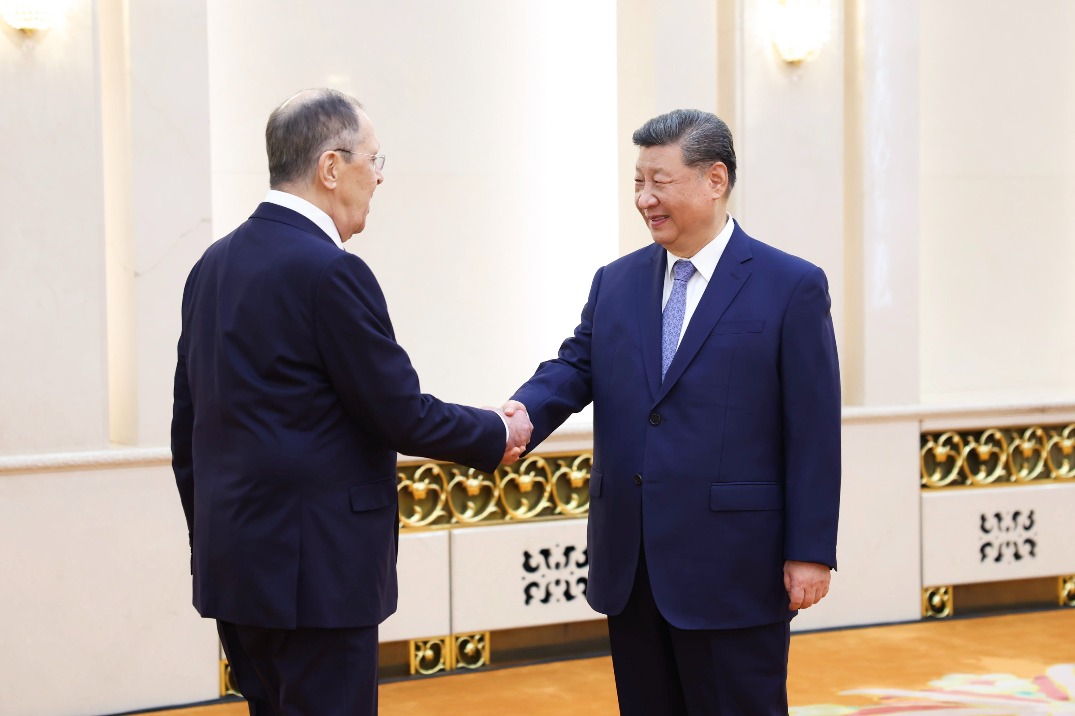West should stop spreading rumors about Xinjiang


Once again, the US has pointed fingers at China's domestic affairs, tarnishing Xinjiang's records in its latest so-called religious freedom report released by the US State Department. This repetitive action is nothing new but an age-old tactic of slander, much like the unfounded rumor of "forced labor".
Labor is a human activity on which society is based and development pursued. People need to work to fulfill their or others' needs and wants, which contributes (along with other factors of production) the most toward the goods and services in an economy, and improves the lives of individuals. How can people be forced to seek a better life?
The International Labour Organization describes "forced labor" as all work or service which is exacted from any person under the menace of any penalty and for which the said person has not offered himself voluntarily.
Whether employed locally or seeking work elsewhere, Xinjiang's workers are motivated by a deep understanding of working values. In June, my research in Xinjiang confirmed that members of minority ethnic groups were working in different enterprises of their own volition.
"My work, my choice" aptly describes the independent decision-making by Xinjiang's ethnic groups when it comes to employment. They opt for jobs based on their desire, skills, preferences and career aspirations without any external influence. For instance, in my survey, Abdurehim Tulyak, an employee at Kashgar Xinyue Textile Co. in Yuepuhu county, Kashgar prefecture, found a job through a WeChat group three years ago. Turaik said that: "We choose our jobs based on our interests, and the company tries to meet our preferences."
In fact, Xinjiang's workers have the freedom to choose their careers, reflecting the provisions of China's Employment Promotion Law, which guarantees equal employment and the right to choose one's career. The region's high-quality economic development has created a large number of jobs, allowing workers to choose which enterprise or institution to work for based on their interests and capabilities without any racial, gender or religious discrimination.
Xinjiang promotes equal labor rights and employment opportunities, fair labor rules, and legal protection for employees. Local labor protection laws complement national regulations, fostering an inclusive environment, and prohibiting racial, gender and religious discrimination in employment.
Way back in 2014, regulations were implemented to prevent discrimination in recruitments for State-owned enterprises. Recent recruitments by local branches of SOEs such as the Industrial and Commercial Bank of China and China Unicom, and private companies like TBEA Xinjiang Sunoasis Co.don't reveal any ethnic discrimination, demonstrating that the job market in Xinjiang is free from ethnic discrimination.
Last year, Xinjiang reached a significant milestone by creating 482,200 new urban jobs and 1.09 million jobs for those people lifted out of poverty. And while there are mechanisms to protect workers' right to fair wages and ensure their pay is increased as and when needed, regulations ensure workers get enough rest and leave, including paid annual leave, statutory holidays, and female workers get special leave.
Also, measures have been taken to ensure all workers are covered by social insurance programs, and to prompt companies to provide social welfare benefits such as annuity and supplementary health insurance for all workers.
Besides, while workplace safety measures, which align with the ILO's standards, are strictly enforced in Xinjiang, religious beliefs and practices, and dietary preferences of workers from minority ethnic groups are respected and protected. Not to mention that the quality of employment in Xinjiang has improved with more workers employed in technology-intensive and high-tech industries.
Western criticism can't overshadow the reality of Xinjiang's labor landscape, where the rights and dignity of workers are respected and protected. And Xinjiang is committed to building harmonious relations through collective bargaining and employment contracts, and by developing fair and safe working conditions.
The author is dean of the Institute for Advanced Study of Ethnicity and Society, Xinjiang Normal University.
The views don't necessarily reflect those of China Daily.
If you have a specific expertise, or would like to share your thought about our stories, then send us your writings at opinion@chinadaily.com.cn, and comment@chinadaily.com.cn.

































